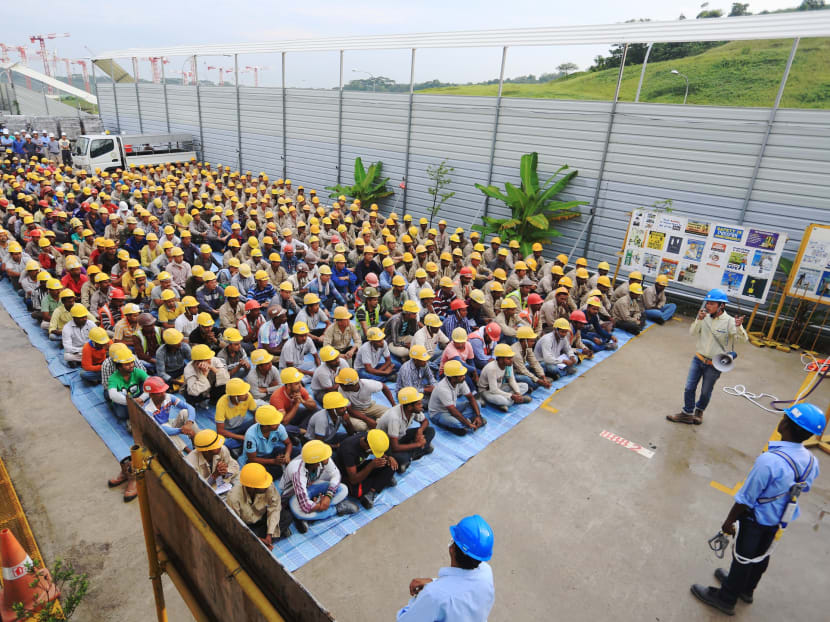Compulsory settling-in programme to be extended to all non-Malaysian foreign workers
SINGAPORE — From the second half of next year, all non-Malaysian foreigners who are here on work permit for the first time will have to attend a mandatory Settling-in Programme (SIP) that will help them understand among other things, their employment rights and obligations, laws, and social norms in Singapore.

From the second half of next year, all non-Malaysian foreigners who are here on work permit for the first time will have to attend a mandatory Settling-in Programme (SIP) that will help them understand among other things their employment rights and obligations, laws, and social norms in Singapore. TODAY file photo
SINGAPORE — From the second half of next year, all non-Malaysian foreigners who are here on work permit for the first time will have to attend a mandatory Settling-in Programme (SIP) that will help them understand among other things, their employment rights and obligations, laws, and social norms in Singapore.
Currently, only foreign domestic workers (FDWs) are required to undergo the SIP. The programme will be extended to foreign construction workers first — with about 2,000 of them attending each month — before being progressively rolled out in other sectors such as marine, process, manufacturing and services.
Announcing the initiative on Sunday (Nov 26) at an appreciation dinner for the Ministry of Manpower’s (MOM) partners, Manpower Minister Lim Swee Say said the SIP aims to “provide an opportunity for workers who are new to Singapore to ask questions and clarify their doubts”, and help them know “where and how to seek help”.
The one-day SIP will be conducted in the workers’ native languages.
Mr Lim noted that there are almost one million work permit holders here, and more than two-thirds are non-FDWs.
“They help to build our homes, schools, hospitals, roads, parks and many other amenities. They also help to clear our rubbish, clean our neighbourhoods, work in our factories, hotels, hospitals, shopping malls, public transport... and the list goes on,” Mr Lim said. “The least we should do is to treat them graciously, and ensure that their well-being is taken care of properly. And this begins even before they arrive in Singapore.”
Employers will be required to register their foreign workers for the SIP, and bear the course fee. The MOM is working out the details such as the cost of the programme, the list of course providers and potential subsidies for companies.
In his speech, Mr Lim also highlighted organisations which play a key role in helping workers settle salary disputes and work injury claims.
One such group is the Migrant Workers’ Centre, which helps workers with legal settlements, as well as food, housing and interim financial assistance such as paying for their calling cards and EZ-link top ups.
Another non-profit organisation Healthserve was also lauded for providing emotional support to injured workers.
The organisation also has a pool of trained workers and volunteers who work with medical social workers and hospital doctors to care for the injured workers, said Mr Lim. “On occasions, (Healthserve workers) have gone all the way to accompany the worker back to his hometown,” he added.
In the first nine months of this year, the MOM handled about 11,500 cases of injured workers. Almost all (99.9 per cent) of these workers had their cases successfully resolved within the year so far. The remaining cases were not resolved because the employers had failed to buy work injury compensation insurance, or had faced financial difficulties.
The ministry stressed that it takes “strong actions against irresponsible employers” which fail to provide proper accommodation, pay salary on time or compensate their workers for work injury medical leave or pay-outs.






